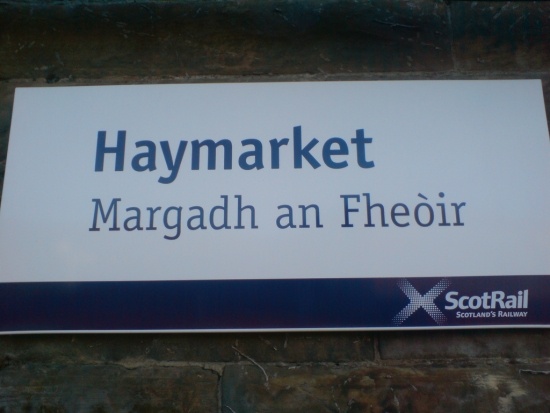The economic downturn had a huge effect upon the UK, with consumers and businesses alike forced to reconsider their futures thanks to a lack of funds. As a result, a number of development projects ground to a halt across the UK, with the retail and leisure industries particularly struggling to overcome this obstacle.

Fortunately, businesses are now choosing to take a step out of the doldrums and either sell the project proposals, or alternatively pick up from where they left off. One such project is located in the Haymarket area of Edinburgh, with work due to resume this summer.
The £200 million project will consist of offices, a hotel and a shopping complex – all of which will be within easy reach of Edinburgh Haymarket train station with links to the nearby airport.
Thanks to the years of delays, caused firstly by planning disputes then the financial crisis, the project already has full planning permission, meaning construction can commence as soon as initial work has been completed.
Construction company Interserve will invest £10.5 million into the project, although the construction contract is worth £150 million, in order to initially get the ball rolling on the development. Working in partnership with landowners Tiger Developments, it is hoped that the completed complex will create up to 3,500 jobs on top of the 250 required for the construction process.
Chief executive of Interserve, Adrian Ringrose, says; “Edinburgh’s Haymarket site remains one of the best city centre development schemes to be found anywhere in the UK.
“It will provide a strategic gateway for the city centre, linking seamlessly with one of Scotland’s busiest railway stations as well as being adjacent to the city’s new tram network.
“The proposals for a mix of leisure, retail and office space, linked by open public spaces, will act as a catalyst to regenerate the commercial heart of the area as well as create jobs.”
Despite the fact that it is still relatively early in the development process, supermarket giant Tesco and serviced apartments provider Staycity initially expressed an interest and have now signed on to the project. Restaurant chains Prezzo and Pret A Manger have also committed to the second phase of the development.
Development director of Tiger Developments, Simon Fox, wants the Haymarket project to bring needed amenities to the local community.
He says; “Throughout the planning process we have worked hard to develop our proposals in line with the needs of the city and the local community.
“So far we have received significant commercial interest in the site from a wide range of UK operators, on top of the existing tenants already signed up.”
Do you think city centre developments such as the Edinburgh Haymarket project will manage to rejuvenate the retail and leisure industries, or will they simply draw custom away from other areas in the city itself?
Previous Post
Hong Kong Retail Rents Continue to Rise